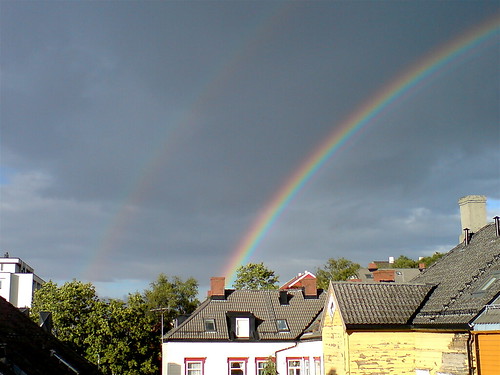In these times of grading fixation in education it is interesting to come across the outspoken critic and author Alfie Kohn. Mr. Kohn has written a number of books on the negative effects of rewards and punishments of grading. He is also skeptical of the traditional system of homework. In his book The Homework Myth: Why Our Kids Get Too Much of a Bad Thing (2006) he questions the need and positive effects of homework. He believes that the school and its environment is the main focal point for learning and work. 
The debate is timely in Norway too as I encounter parents who feel overwhelmed by their kids' homework, especially as they advance to higher levels. Every week they are given a homework plan with assignments in the main subjects. The assignments vary from reading, task solving, math calculus or research for a project or paper. Most parents feel that their kids should have homework as they did when they attended school. The problem for many families are time. The nuclear family is a minority in the Norwegian society (and other societies in the West) and a lot of time and organizational evolves around transport and logistics. How to make the proper priorities, and how to make homework meaningful?
I try to evaluate the way I give homework to my students, I try to reinvent, evolve and be original. It's not always easy, but I think Mr. Kohn has an interesting point when he questions the benefits of homework. It does not necessarily take up much time of the kids' sparetime, but could we try to break out of this and try to think in new ways about homework?
At an end note I'd like to recommend a riveting comment from a Norwegian girl who's a high school student. She criticizes all the bad karma around the Norwegian school debates these days in the aftermath and hangover of the PISA-tests. She says Norwegians hate not to be on top in international rankings and that our politicians tend to panic. These tests are important, but they only measure a fraction of what schools teach their students. What about social and moral behavior, ethical values like respect, debating skills and skills to question - in essence - how to become decent people. Ms. Tømte writes:
Den norske skolen har altså utviklet seg fra å være en autoritær institusjon til å bli et lærested der voksne og barn snakker samme språk og har det samme fokus: Å gjøre folk av oss.
Thus has the Norwegian school developed from being an authoritarian institution to become a place of learning where adults and children speak the same language and have the same focus: To make us into decent people. (My translation).
And this relationship requires mutual respect - and authoritarian teachers don't easily acquire this in Norwegian schools, but teacher who do earn their students' respect have moral authority based upon a wide and substantial knowledge base.
Ingen kommentarer:
Legg inn en kommentar